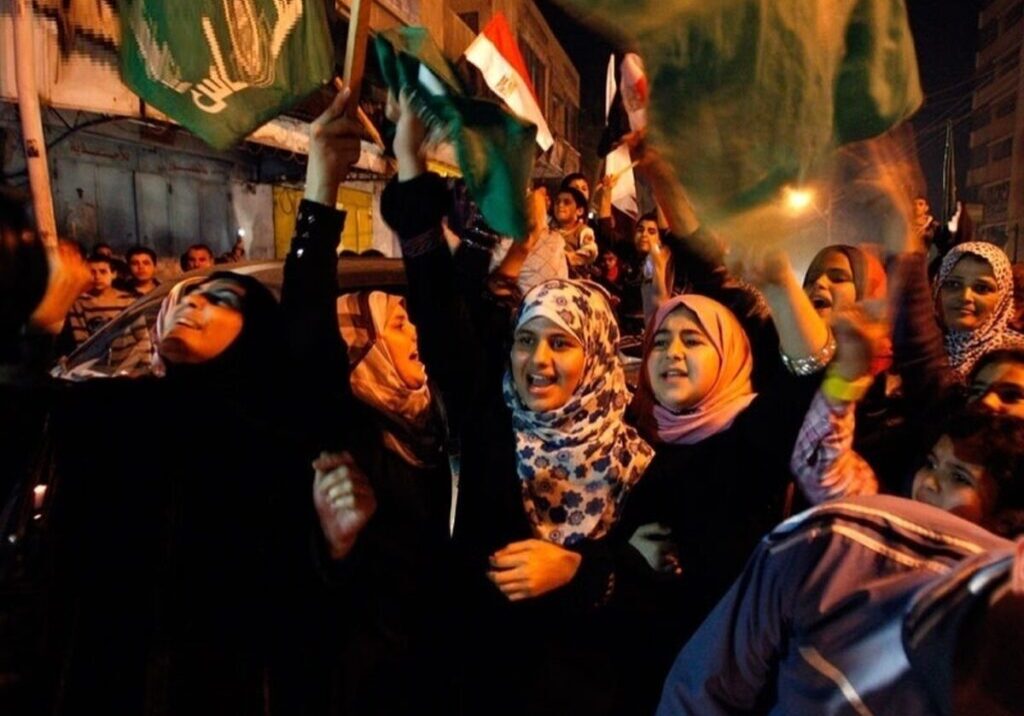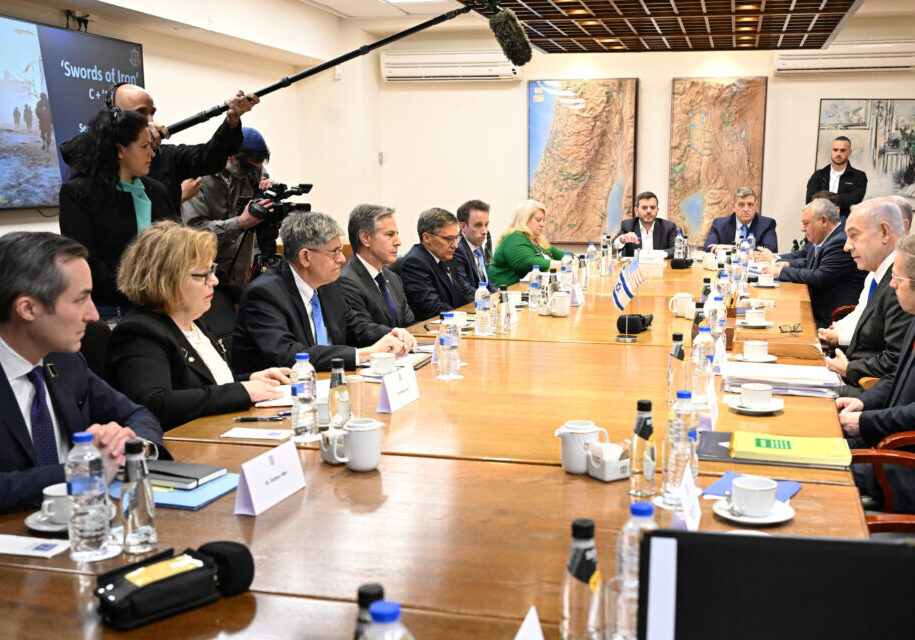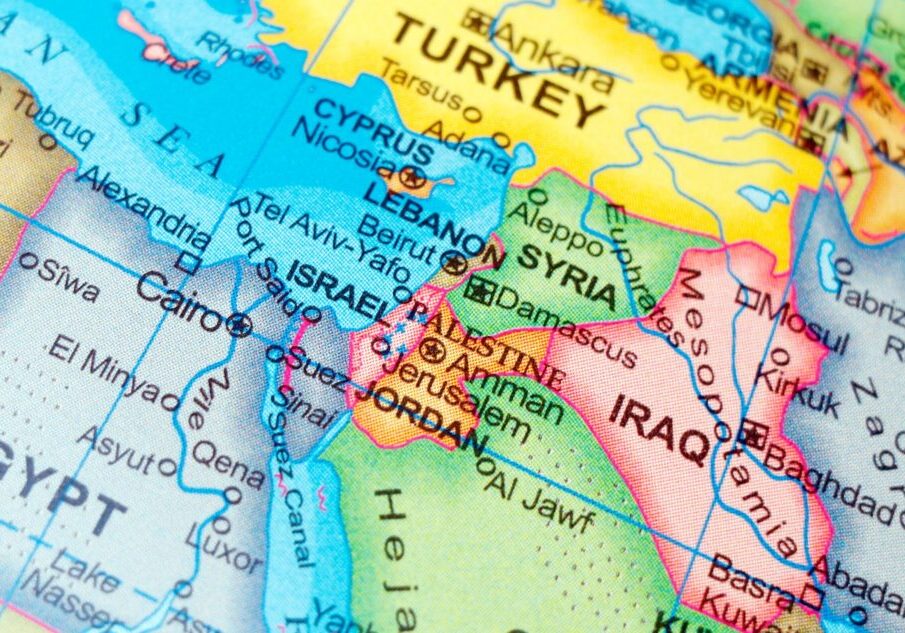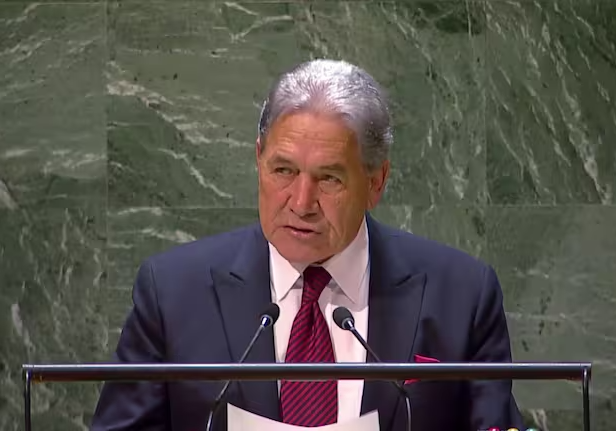Australia/Israel Review
Noted and Quoted – May 2016
May 5, 2016 |
Not eye to eye on Iran
The Age editorialised (March 28), following Iranian Foreign Minister Javad Zarif’s visit to Australia in mid-March, that Australia and Iran “do not, and will not in the near future, see eye to eye on matters of human rights.”
The paper attacked Zarif’s “hypocrisy about human rights” calling it “breathtaking” that he had said on ABC TV Iran did not like “some aspects of the way Australia treats Iranians, who have been basically lied to by human smugglers.” The paper said for Iran “to chastise this nation, when thousands of its own people have fled persecution, is rich indeed.”
“A” for effort, “Z” for substance
AIJAC’s Colin Rubenstein ridiculed the “urbane” Zarif’s claim during his recent visit that his country is “the only serious country in the region that holds elections.”
As Rubenstein pointed out “In fact, the vetting of any genuine moderates and the ultimate power of the Supreme Leader [Ayatollah Khamenei] mean Iran’s elections are only slightly more meaningful than the Clayton’s elections staged by Syria, Egypt and other autocracies.” In contrast, Israel of course does hold regular free and fair elections.
Scrutinising Zarif’s claim that his country doesn’t attack its neighbours and therefore the missiles are defensive, Rubenstein noted, “it may be true that Iran’s armed forces have seldom openly attacked other countries… instead it trains, equips and supplies terrorist proxies to act on its behalf. Indeed, in late 2014, Alireza Zakani, an Iranian parliamentarian close to Supreme Leader Ayatollah Ali Khamenei, was able to claim that four Arab capitals – Damascus, Baghdad, Beirut and Yemen’s Sana’a – had fallen into Iran’s hands through these methods. The constant regime calls for Israel’s destruction, and the fact that missiles in the recent tests were emblazoned with the message ‘Israel must be wiped out’, written in Hebrew, demonstrate Iran’s real focus,” Canberra Times (April 2).
The war on Christians
In the Age (April 4), renowned British Rabbi Jonathan Sacks lamented Islamist violence directed at Christians.
“Christians are being persecuted in some 50 countries, among them North Korea, Syria, Somalia and Sudan. In 2003 there were 1.5 million Christians in Iraq; today a few thousand. In Mosul, one of the oldest Christian communities in the world, Christians were forced to flee by Islamic State in 2014. In Afghanistan the last church was burned to the ground in 2010. In Gaza in 2007, after the rise of Hamas, the last Christian bookshop was destroyed and its owner murdered… The ethnic cleansing of Christians throughout the Middle East is one of the crimes against humanity of our time, and I am appalled that there has been little serious international protest.”
Two-states, one truth
In the Australian Financial Review (April 1), a much-needed corrective from left-wing Israeli author Gershom Gorenberg countered the mainstream media’s default position that a two state solution to end the conflict between Israel and the Palestinians has become impossible because of Israeli settlements.
According to Gorenberg the two polities are not intertwined “despite the growth of the settlements” and have “slowly moved apart”.
“The days when residents of the West Bank and Gaza could travel freely inside Israel, and when Israelis could go dancing in Bethlehem on Friday night because nightspots in Jerusalem were closed for the Sabbath, ended with the first intifada. After the Oslo Accords, signed in 1993 and 1995, the Palestinian Authority took over day-to-day government services in the West Bank and Gaza, reducing most Palestinians’ contact with Israeli civilian officials – though in the long term, not with soldiers. Meanwhile, Israel built roads to settlements that looped around PA-controlled areas and settlers no longer drove through Bethlehem or Ramallah on a daily basis.”
Moreover, “serious negotiations since the 1990s haven’t produced a final agreement, but they have developed the principle that one-to-one land swaps between Israel and the new Palestinian state would allow Israel to keep the Jewish neighbourhoods of east Jerusalem and other large settlements close to the pre-1967 border.”
This would likely involve relocating “150,000 or less” settlers which is difficult but achievable, he wrote, noting that “Israel absorbed over 180,000 immigrants from the Soviet Union in 1990 alone.”
Paul and Stephen
An online feature (April 12) by Fairfax chief correspondent Paul McGeough quoted, seemingly approvingly, long time anti-Israel polemicist Stephen Walt’s assessment of the deficiencies of the Obama Presidency.
“Israel-Palestine: Obama was well-intentioned, [did someone say naive?], but all he got was serial humiliations – Israeli settlements expanded, Gaza kept getting pummeled; moderate Palestinians were discredited; Hamas grew stronger; and the two-state solution that, nominally at least, was the policy keystone of the Clinton, Bush and Obama White Houses, now is dead.”
Israeli settlements did not expand in terms of area and have remained largely within the same boundaries for more than a decade. Hamas’ rejection of peace in favour of transforming Gaza into its terror centre and a production facility to develop and launch terror rockets caused it to be “pummeled”. The peace deal that would create a Palestinian state which has been on the table for 15 years is still available. It is primarily the relentless rejection by the Palestinian side that ensures it is not becoming reality.
Reality elbowed out
Former Australian Middle East correspondent John Lyons, whose reporting caused controversy during his tenure, returned to the fray on March 16 with a report that aired a factually groundless conspiracy theory designed to discredit Labor MPs who take part in organised trips to Israel.
Without any credible evidence, Lyons’ report essentially implied that the Israeli company Elbit Systems, which specialises in defence electronics, but which Lyons described as “one of Israel’s largest arms manufacturers”, funds trips by ALP members to Israel.
Lyons reported that Mary Easson, a senior member of the Australia Israel Labor Dialogue (AILD), also works as a lobbyist for Elbit – the implication being that she acts as its go-between. This is despite the fact that the Elbit connection is laughably indirect – Ms. Easson merely works “as a consultant to a company that has a contract with Elbit”, according to AILD.
Only three-quarters into the article was it clear the allegation lacked compelling evidence, “Ms Easson said Elbit Systems of Australia managing director… assured her no donation had been made from Elbit to the AILD.”
The report claimed Easson’s roles were “almost certain to lead to anger within the ALP from those who have taken trips organised by the AILD.”
But this was political troublemakers and their media allies essentially having the tail wag the dog.
The only ALP MP who voiced anger was Melissa Parke, whose history of pro-Palestinian activism long predates her time in parliament, and who has certainly never taken an AILD trip.
Lyons also stated that “Easson has been locked in a brutal fight inside the Labor Party with former foreign minister Bob Carr over policy towards Israel. Ms Easson wants the ALP to retain its bipartisan support for Israel while Mr Carr wants a deadline for Israel to cease its expansion of settlements in the West Bank and to return to negotiations with the Palestinians.”
In fact, under Prime Minister Binyamin Netanyahu, Israel has periodically frozen settlements construction as a measure to facilitate unconditional peace talks. It is PA President Mahmoud Abbas who has rejected repeated offers of negotiations.
The next day a follow up story afforded Bob Carr the opportunity to put his name to the “allegations” made, but added almost nothing of substance to the claims, except for NSW AILD Patron Peter Beattie’s statement that “there had been no donations since he became patron last year, ‘so there is nothing to audit’.” Strangely, a release by the AILD refuting the allegations was ignored.
No highs, only lows
An unedifying love-in on ABC Radio 891 “Adelaide Evenings” (March 21) saw Peter Goers interviewing anti-Zionist activist and author Antony Loewenstein, who trotted out a litany of the sort of erroneous claims on which he has managed to build a career.
The mood was set from the outset with Goers introducing his guest saying, “I once wrote something that pleased Anthony Lowenstein and that pleased me very much.”
Loewenstein claimed, “Israel is the ultimate example of a country that plays by its own rules,” accusing it of ignoring “countless rulings in the International Criminal Court [ICC], every human rights group in the world – Human Rights Watch, Amnesty International, the UN and others.”
There have been no such ICC rulings, which has never taken a case on Israel. Loewenstein perhaps means the 2004 International Court of Justice’s non-binding opinion on the legality of the security fence. If so, apparently one ruling becomes “countless rulings” in Loewenstein’s rhetoric.
Not content to miss out on the chance to also talk nonsense, Goers chimed in that the security fence is “750 kilometres of an eight-metre high concrete wall. Imagine if you woke up dear listener tomorrow and there was an eight-metre high concrete wall on your fence line, so your driveway and front door is now useless. This is… the conditions under which many thousands of people are living.”
Loewenstein said it affected “millions in fact”.
“In fact” only 3 percent of the fence is concrete and it mostly runs along the Green Line demarcating the 1949 armistice lines. The concrete sections were determined by the incidence of Palestinian sniper fire during the Second Intifada. In most places it is made of wire with electronic sensors detecting potential infiltrators. It certainly does not leave “thousands” of people with their driveways and front doors cut off, nor does it directly affect “millions” unless your argument is that it affects every Palestinian in the West Bank. And it has unquestionably reduced terror attacks dramatically.
Loewenstein, who is currently based in east Jerusalem, was asked if he will “get into trouble because of your views in Israel?”
He responded, “Weeellll, I probably would”.
Israel is a democracy that supports free speech and activists there say even more extreme things than Loewenstein but do not get deported or arrested unless they are involved in criminal activity.
From this he segued into a half-lucid, largely non-factual summary of the debate in Israel over how to respond to NGOs like Breaking the Silence which releases anonymous testimony of former soldiers, often offering scant detail and exaggerated claims to malign the IDF for political purposes.
The debate in Israel is over mere disclosure of the funding NGOs receive from foreign governments. Many NGOs support a one-state solution and the BDS movement, and receive most of their funding from European countries that supposedly oppose both.
Loewenstein tried to spin this debate as an attempt to “to shut down dissenting Jewish groups within Israel,” adding “I think you have a serious question about how you see democracy, if at all.”
Dubious Duffill
Academic Paul Duffill of Sydney University’s pro-BDS Centre for Peace and Conflict Studies accused Australia of a “deep and dangerous double standard.”
He alleged the government gives “political support for the settlements and continuing trade with Israeli arms companies that profit from the wall associated with the settlements” but has a “range of punitive sanctions…[against] other governments and groups in the region that also have highly problematic human rights records: Lebanon, Yemen, Afghanistan, Syria, Iran, Libya, Iraq, Hamas and other Palestinian groups.”
The current Australian Government understands that settlements are merely one issue among many to be resolved through the negotiation process.
Furthermore, it knows that Israel endorses and has offered the Palestinians a two-state solution, unlike Hamas and Iran which have made Israel’s destruction a cornerstone of their foreign policies.
Duffill also characterised the security fence as “a wall that is integral to Israel’s occupation and settlement activities,” without mentioning construction of the fence, not wall, began at the height of the second Intifada terror wave, Sydney Morning Herald online (April 7).
Groundbreaking story
It’s not often that the media reports on Israel beyond the prism of the Arab-Israeli conflict.
However, in the Age and Sydney Morning Herald travel sections (March 19), Ben Groundwater included Israel amongst a group of Middle Eastern countries worth visiting.
Groundwater succinctly summarised Israel’s attraction as a destination, writing, “Israel is geographically and historically Middle Eastern, though its modern culture reflects the wide range of immigrants who now call the country home. In Tel Aviv you have one of the world’s great cities for dining and nightlife, while Jerusalem is still a traditional centre, important for both Muslims and Jews” and quoted Anthony Ham, editor of Lonely Planet’s Middle East guide, who said “it’s modern, it’s safe.”
Israel’s universal lessons
Continuing its excellent coverage of the burgeoning growth in Australian-Israeli hi-tech cooperation, the Australian Financial Review (April 12) reported on comments made by Tel-Aviv University President Professor Joseph Klafter during a recent visit here.
Yolanda Redrup wrote that Klafter called on Australian universities to emulate their Israeli counterparts by doing more to “support the commercialisation of research to spin out start-ups.”
Klafter pointed to Tel Aviv University’s US$23.5 million Momentum Fund which was established in 2014 with backing from a Singaporean investment fund. According to Klafter the fund is “guided by an international committee and it distributes money to researchers who come up with an idea.”
He notes there is growing Australian academic interest in the Israeli example, “I have been visiting here for the last three or four years, and there has been a very big change in those universities that I visited in terms of understanding… Now I hear more about innovation and there is also much more interest in new approaches to innovation.”
Sanders’ kernel of support
An AFP/AP story reported on the political views of US Democratic presidential candidate Bernie Sanders on Israel and the 2014 Gaza war.
The report noted that Sanders was wildly inaccurate in claiming that Israeli military actions in the 2014 Gaza war caused the deaths of “more than 10,000 innocent people in the conflict” and that he had accepted “the figure was actually just over 2100 people.”
Unlike the overwhelming majority of media reports on the Gaza war, which too often uncritically parrot pro-Palestinian claims, the article included the views of both sides of the conflict regarding the number of fatalities and the causes of the war.
“Israel launched the seven-week conflict in the Hamas-ruled Gaza Strip in response to the group’s firing of rockets into southern Israel. More than 70 per cent of the 2130 Palestinians killed in the conflict – which destroyed infrastructure and houses – were civilians, the UN estimates. Israel puts the number at about 50 per cent,” Australian (April 12).
Meanwhile, Greg Barns, who has a long history of expressing anti-Israel views at every opportunity, praised Sanders, for, amongst other things, being “prepared to take on the foreign policy establishment and its slavish adherence to Israel and addiction to military spending,” Age/Canberra Times (April 13).
Tales of Hoffman
Discussing his recent book on the role of terror in pre-state Israel – Anonymous Soldiers: the struggle for Israel – US terror expert Professor Bruce Hoffman told ABC Radio National host Philip Adams that British concessions to Arab terror encouraged fringe pro-Zionist forces to believe terrorism was effective.
According to Hoffman, Britain was “extraordinarily well-intentioned” in its commitment to the Palestine Mandate but made a “number of really disastrous moves that undermined its rule.”
He said that “virtually from the start of Jewish emigration to Palestine following World War One [which was met by Palestinian Arab violence], instead of dealing with the violence firmly, Britain attempted to assuage the Arab discontent with a series of concessions throughout the 1920s that I think breathed life into the notion that violence paid.”
The policy resulted in “radical” Jewish militant organisations in the late 1930s and 1940s “reach[ing] the same conclusion.”
Adams, who has a history of on-air sniggering that pro-Israel supporters are unable to tolerate differing points of view, asked Hoffman “were you almost blown out of the water when the book was published? Did it make people very angry?”
Hoffman said his book did generate heavy criticism in Israel and diaspora Jewish communities but said “there is really an enormous capacity for self-reflection… even over some of the more sensitive and discomforting aspects of Israel’s history,” ABC Radio National “Late Night Live” (April 6).
This article is featured in this month’s Australia/Israel Review, which can be downloaded as a free App: see here for more details.
Tags: Australasia






